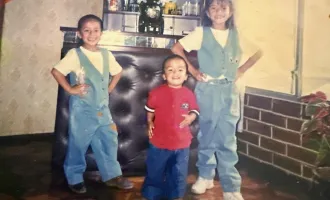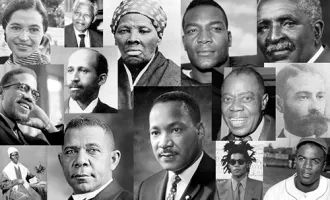
Photo by AJ Colores on Unsplash
This Date in UCSF History: Stop Glorifying the Police
Originally published in Synapse on May 20, 1992. In the violent aftermath of the acquittal of the officers who beat Rodney King, the nation is asking itself difficult questions concerning the racism and class inequality that erupted into riot in Los Angeles and elsewhere.
I wish, however, to address an issue that has received entirely too little scrutiny — that of the police brutality that sparked the rioting in the first place.
I do not believe that the beating of Rodney King was an aberration. If one pays attention, one will find, buried in the back pages of the daily paper, innumerable reports detailing the bone-chilling testimony of victims of police brutality.
Occasionally, these cases go to court, and the city whose police were responsible ends up paying thousands or millions of dollars in damages to the victim.
These are the rare times when the ending is almost just, when the victims receive compensation for their physical and emotional devastation at the hands of those whose job it is to protect them.
What usually happens is that die story of the victim is completely disbelieved — as evidenced by the decision in the King case.
I submit, then, that the verdict in the King case was borne not just out of racism, but also out of an ignorant tendency, endemic in America, to respect the police, even in cases where they are obviously vicious attackers and proven liars.
Such blind support of any actions of law enforcement is perhaps understandable in view of the rampant violent crime that plagues the nation.
A little bit of thinking, however, shows how dangerous such reaction is.
The next time you see a police officer in uniform (they can often be seen in considerable numbers standing around aimlessly in the vicinity of the emergency room), take a good look at him or her.
Examine the various paraphernalia, especially the night stick. The baton reaches from his navel down almost to his knee and is several inches in circumference.
Now, imagine that this cop has stopped you on a dark street for a traffic violation.
You emerge from your car, and for whatever reason, you are tired and irritable. The officer orders you to stop, but your face is black, or Hispanic, or Asian — or maybe he just doesn’t like you or your angry expression, and he has had a lousy day, too, and he is, deep inside, scared as hell of you — so he hurls his baton into your stomach with all his strength, bringing you to your knees.
In confusion, you stumble back up; the officer thinks you are on PCP, and so he slams his baton into your head again and again, even while you scream for him to stop.
The officer then arrests you for resisting arrest, even though he had no intention of ever arresting you for anything in the first place.
When you are recovered enough (if you recover at all) to talk about what happened, the officer says that he thought you were armed and dangerous, and he feared for his safety.
Because the cop wears a uniform, the jury believes everything he says and disregards your complaints —but the charge against you, “resisting arrest,” is mysteriously dropped.
The excuses of the officers in such cases are always that they thought the suspect was armed and dangerous; apprehending a possibly dangerous suspect, especially after a death-defying car chase or some such exhilarating tactic, involves an incredible rush of adrenalin, and it was therefore impossible for him to remain in control of his judgment; and so on.
In light of the wanton destruction of human life and well-being caused by officers in these situations, I think these excuses arc pathetic.
They reflect a lack of responsibility on the part of police departments to provide proper training and discipline to their officers and to institute measures to prevent such scars on the face of civilized society from occurring at all.
The fact is that society has placed enormous trust into the hands of the police, but the mechanisms for ensuring that the police arc accountable to the public are almost nonexistent.
Witness, for example, the ironfisted actions of San Francisco’s ex-police chief, Richard Hongisto (a so-called liberal), in dealing with protestors against police brutality in the days after the King verdict.
(Mayor Jordan and his chief declared what amounts to marshal law and arrested protestors and innocent bystanders without regard for their constitutional right to assemble, and without even allowing them to disperse when ordered to do so.)
Given the easy corruptibility of human nature, it is patently absurd to assume that men and women who have been given enormous power and blind respect will not frequently take advantage of their power when given the opportunity.
Since police arc often in contact with suspects (who could as easily be you or I as real criminals) when no one else is around to witness their behavior, the result is inevitably a high rate of the same kinds of violations of human rights seen in the King video.
Supposedly to ensure that police abuses are minimized, many cities have civilian police review commissions that handle citizens’ complaints; in most cases, however, these commissions lack any kind of real power to induce even the suspension of a repeatedly out of control officer.
Police departments are notoriously secretive, claiming that secrecy is necessary to protect their officers from retaliation and their operations from exposure. The tragedy is that the unsuspecting public accepts this excuse out of a desire to avoid hindering the fight against crime.
And because the majority is complacent, those who are most often the victims of the police (usually ethnic minorities) are left to suffer these injustices until their rage explodes into riot.
We have given the police entirely too much freedom and too little scrutiny.
We have given the police entirely too much freedom and too little scrutiny. I fear that the consequences of our complacency will be more than just a few riots.
The Germans before World War II allowed their government to usurp their rights one at a time ending in the execution of millions of Jews.
After watching the beating of Rodney King and the acquittal of the officers who beat him, the comparison seems horrifyingly apt.
If we do not wish to suffer the consequences of allowing the police to run amok in our society, then we have a responsibility to act decisively to reign them in.
We cannot trust the police to police themselves. We are not powerless to prevent further transgressions of our rights by our paid public servants.
We must raise our voices and demand that every questionable action of the police be scrutinized for its compliance with the Constitution and the standards of human decency.
We must demand new and sweeping powers for police commissions that are elected by the people and whose responsibilities in ensuring careful review of every complaint are dictated by clear and forceful charters.
We must demand that each and every police department in the land be forced to reform its hiring and training policies so that the communities of all people in our cities are fully understood and represented in their police departments.
And we must force ourselves away from the illusion that allowing the police more money and more freedom to violate the rights of all citizens will result in less crime and more harmony.
If we do not re-assume our responsibilities as citizens and ensure a fair and humane system of law enforcement, then we will have only ourselves to blame when the tensions in society engendered by uncontrolled police violence explode in our faces, as they did three weeks ago in Los Angeles.



